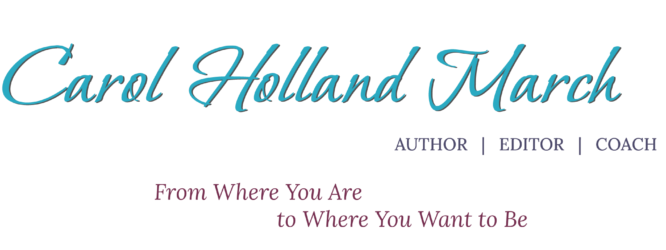I struggle with resistance.
Not all its forms bother me. If the house is cleaned tomorrow or next week instead of today, no big deal. However, when it comes to my writing, yeah, it’s a big deal. If I make excuses for why I’m too tired, too busy or too distracted to do my writing, I’ve fallen prey to the insidious voice in my head. It whispers:
- “You can’t.”
- “That’s not good enough.”
- “You’ll never publish that.”
- “You don’t write as well as she”
- “You have a job. That doesn’t leave time to write.”
- “Business before pleasure.”
- “How can you take time for yourself when others need you?”
- “It’s too late to start.”
- “You have nothing important to say.”
- “When things settle down, you can write.”
At least now I know that the excuses, the rationalizations, the self-doubt, the procrastination and the other thoughts that stopped me repeatedly are not out in the world, but live inside my brain.
As it turns out, everybody has resistance. Some more than others, but no one escapes. It seems to be a condition of being human, a function of how our minds are wired. Maybe it’s culture, upbringing, pollution. I don’t know why the ego mind throws up roadblocks to any change we intend to improve our lives, but every school of psychology and all spiritual traditions have noticed it. Many named it. You probably know some of them.
- Judge
- Death wish
- Parasite
- Demon lover
- Victim
- Critic
- Gremlin
- Negative anima/animus
- Predator
Resistance is fueled by self-doubt, guilt and fear. Whenever you hear yourself saying, “I should” prick up your inner ears. Resistance may be lurking.
Even if you’re not struggling with a call to write a novel, paint a picture or start a new business, you’re not immune. Have you ever tried to change a habit? Start an exercise program? Incorporate meditation into your life? When you try to change your life for the better, resistance whispers its objections to why you’re better off the way you are. The status quo is safe. It’s here. The territory is familiar. Change means navigating your boat through dangerous shoals. Nobody wants to risk drowning. Or do they?
If you listen to the voice of resistance, before long you lose momentum, get dispirited, realize you’re too busy to make that change, and it wouldn’t be worthwhile anyway. Easier to stay in safe waters.
We defend our own creations, no matter how poorly they serve us. Even people with clearly dysfunctional life styles fight to keep the status quo. Have you ever known an addict, an alcoholic, a compulsive gambler, housecleaner or shopper? A whole institution of self–help programs exist to help people who realize their addictions are killing them. The first step in these programs is always the same. Admit that ego is not the answer, that ego cannot heal itself. We need to call on something bigger to overcome our resistance to change.
A wonderful little book about how one writer identified and deals with his resistance is the The War of Art by novelist and nonfiction writer, Steven Pressfield. I found this book when perusing Amazon best sellers in the category Creativity. I tried the book and am now a huge fan, both of his nonfiction and fiction. The War of Art is inspiring and profound. It is a short book that makes its points in simple language.
Pressfield’s answer to resistance is to act like a pro. If you have a job, you show up every day. Why is creative work any different? Get clear about you want, and buckle down. Take your calling seriously. Make the time, even when it isn’t convenient. Learn the craft. Show up. Don’t take rejection personally. Make a separation between your personal life and what you’re doing. Think of your creative work or exercise program or diet as important. A priority. We do what we think is important. We do what we value.
The other thing you may notice is that we do what we’re accustomed to doing, without questioning ourselves. Have you ever asked yourself, why do I do this activity rather than my writing/art/craft work? Are there any tasks I could let go of? Delegate to someone else? Do I use my time doing what I truly want to do? If not, why not?
Pressfield makes an important point that every professional creative has learned. When you commit to a task, make the time for it and stick to it, the Muse smiles, the heavens move and events re-align themselves in ways you could not dream of before you started.
One day I realized I could change my thoughts. Then I realized I could decide to sit at my desk and write even with the chorus shouting their objections. I’ll still be scared, but resistance won’t win.
For me, it took a serious illness to get my attention. It would have been better to figure this out beforehand, but I’m grateful that I was miserable enough not acting to start taking action. Taking the risk to do what I’ve always wanted to do probably saved my life. I don’t know. You can’t ever be sure, but I’ve learned more about my creative process, having compassion for myself and for everyone who struggles, and who I am in relation to my Self and to Source than I dreamed I would before I committed.
What about you? If you have a story about your own resistance, I would love to hear from you. All voices are valuable in the struggle against the resistance. The more we speak out and tell our stories, the stronger we are, and the more we empower others to start to change their lives.
Getting out of own way is a worthy fight.
To check out Pressfield’s book, you can go to Amazon.
The War of Art: Break Through the Blocks and Win Your Inner Creative Battles


